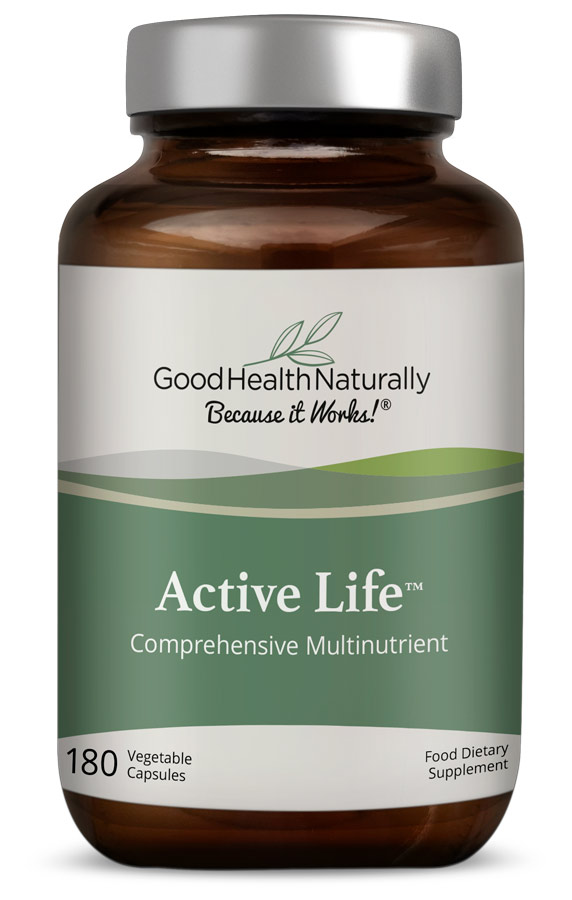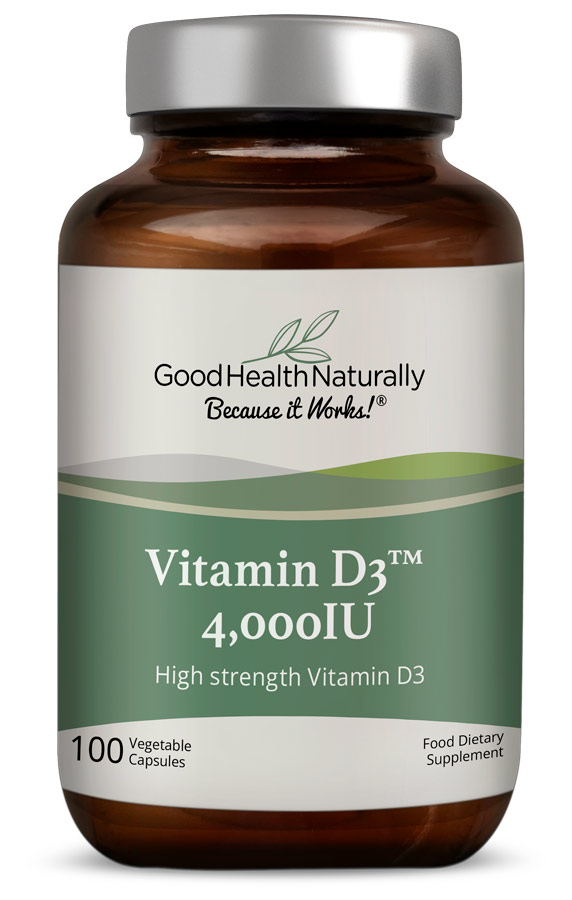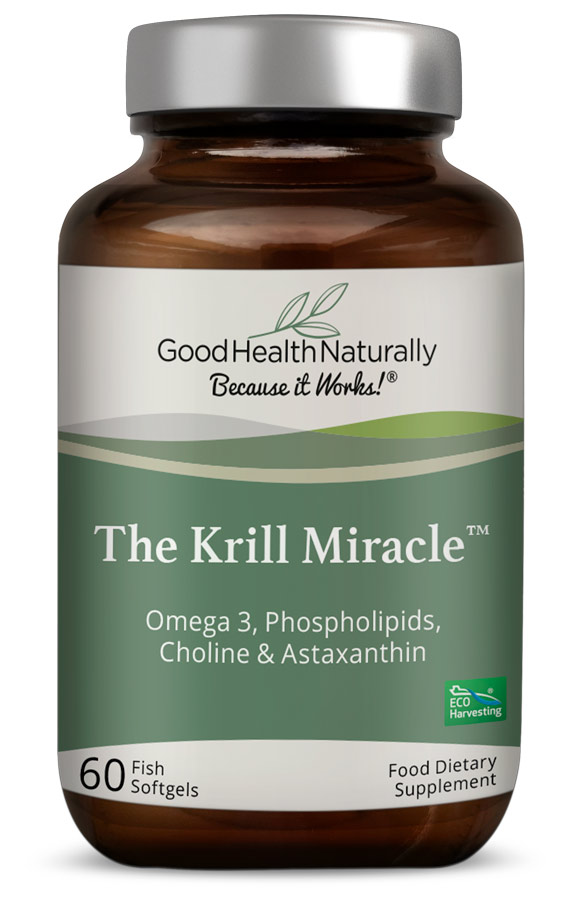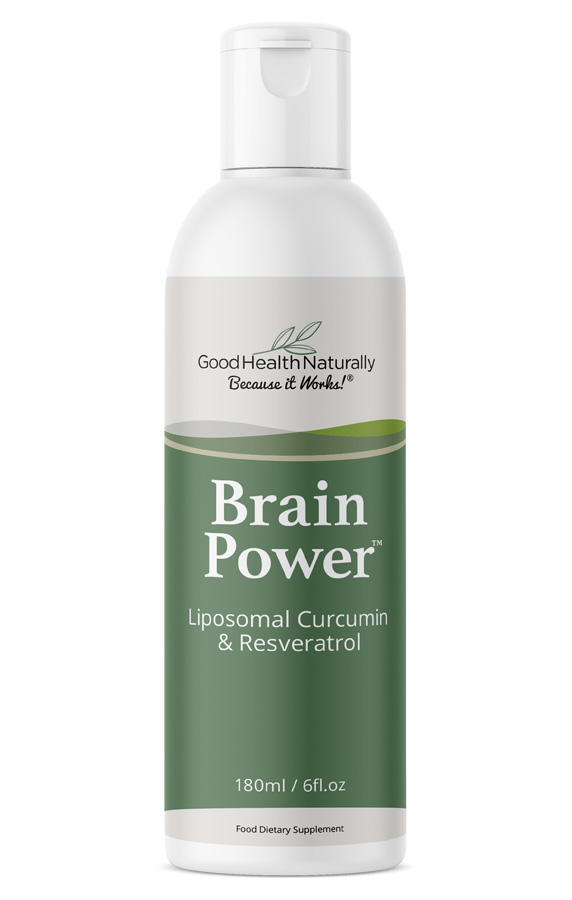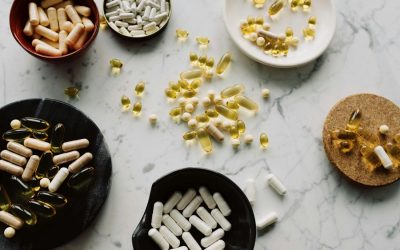While full-blown nutrient deficiencies which cause diseases like rickets, pellagra, and scurvy are relatively rare these days, we are all at risk of suffering from “nutrient inadequacies.” Tiredness, hair loss, muscle fatigue, and poor night vision could all be a sign your body is telling you that you’re missing out on vital nutrients. Modern life has so many challenges, which can make it almost impossible for us to get all the vitamins and minerals we need from food alone. If you want to optimise your health and reduce your risk of illness, then it is crucial to ensure you are getting all the essential nutrients your body needs.
What are vitamins?
A vitamin is an organic molecule which is needed in small quantities for the proper functioning of the body. There are 13 vitamins identified by letters of the alphabet, such as A, B, C and D and chemical names like niacin and thiamine.
While all vitamins are important, some are more abundant in the diet than others. Vitamins A, D, E, and K are fat soluble, so they can be stored in the body, but B vitamins and C are water-soluble, so you need to ensure you top up your levels every day.
If you are depleted of vitamins, signs will become apparent. For example, Vitamin D is important for bone, dental health and immunity, so a deficiency can lead to osteoporosis, hair loss, and susceptibility to colds and viruses. Vitamin B12 is needed for red blood cell formation and DNA production, and low levels may contribute to poor energy, anaemia and depression. Vitamin A is crucial for skin and eye health and a deficiency can lead to dry eyes, poor night vision, and skin irritation.
Why do we need minerals?
The major minerals which are used and stored in large quantities in the body include calcium, magnesium, phosphorus, and potassium. They are needed to build strong bones and teeth, help regulate muscle and nerve function, blood sugar levels, and blood pressure, and are involved in the release of hormones and enzymes that affect almost every function in the human body.
Trace minerals are vital for health too, but we don’t need them in large amounts. These include chromium, copper, fluoride, iodine, iron, manganese, molybdenum, selenium, and zinc. For example, iron is part of haemoglobin, a protein that transports oxygen from the lungs to the tissues. Iodine and selenium are needed to make thyroid hormones, which control your body’s metabolism and other functions.
What happens if we don’t meet our nutritional needs?
If you don’t get enough of even just a few of these, there could be huge consequences for long-term health.
Dr Bruce Ames, a Biochemistry and Molecular Biology professor, has developed a hypothesis called the Triage theory. He suggests that if there is a modest deficiency of even just one single nutrient, it will trigger a built-in rationing mechanism favouring the production of proteins needed for immediate short-term survival and impairing the production of proteins needed for long-term health. This can accelerate age-associated diseases, like macular degeneration, heart disease, and even some cancers.
Why Aren’t You Getting the Essential Nutrients Your Body Needs?
Supermarkets may be bigger than ever, with a plentiful supply of fruit and vegetables on the shelves all year around. But fresh food isn’t what it used to be! The food industry has become a global business, and produce often travels on long journeys across continents. Nutrient levels begin to decline as soon as the food is harvested. So inevitably food which has travelled will have far lower vitamin and mineral content than local food.
Soils are depleted
Intensive farming, deep ploughing, and not allowing fallow periods have all led to changes in soil quality and reduced nutrients in our food. Some research suggests freshly grown vegetables today contain 60% fewer minerals than the same foods a century ago. On top of this, the increased use of pesticides means traces of toxins like heavy metals and glyphosate are getting into the food supply, binding to nutrients and decreasing their availability to the body.
Our plate has changed
Our ancestors would barely recognise the food we pile on our plates these days. The Victorians ate more portions of vegetables than most of us eat today. The typical Western diet is now largely composed of high-carbohydrate, high-calorie, processed, and nutrient-poor foods, with a lot fewer vegetables, so it is fair to say most people will be lacking in some of the essential nutrients your body needs. Of particular concern are micronutrients like iron, selenium, zinc, copper, vitamins A, C, E, B-6, folic acid and all the trace minerals we need in tiny quantities.
We’re all so stressed
Our lives are busier than ever, and many people are burning the candle at both ends, leaving little time for relaxation. The World Health Organisation classifies stress as “the health epidemic of the 21st century”. With occasional stress, the body quickly returns to normal. But long-term stress keeps us in a heightened state pumped full of stress hormones. Imagine constantly pushing your foot on the accelerator, it would wear out the car, and persistent stress will do the same to our bodies. It diverts energy away from the gut, often slowing it down, resulting in bloating, pain or constipation. It can also speed it up, causing diarrhoea. Either way, you won’t be properly digesting and absorbing food to obtain the essential nutrients your body needs. On top of this, stress can deplete nutrients like magnesium, zinc, iron and vitamin C.
Restricted diets and fasting
It is obvious, really, that the less you eat, the less likely you are to get all the essential nutrients your body needs. With more and more people following restricted diets like intermittent fasting or veganism, it could mean they’re putting themselves at risk of deficiencies in macronutrients like protein and good quality fats and micronutrients such as vitamins, minerals, antioxidants and phytonutrients. This could have consequences. Not eating enough vitamin A-rich foods like organic meat, fish, dairy, leafy greens or orange-coloured fruits and vegetables may weaken your immune system and even lead to eye damage. An insufficient intake of magnesium-rich whole grains, nuts and leafy greens may cause fatigue, migraines, muscle cramps and abnormal heart rhythms. Vegan diets can be low in B12 and Vitamin D, which are mainly found in meat and animal produce.
Prescription medication
More and more people are being prescribed medication like statins, blood pressure tablets, metformin, and proton pump inhibitors. Long-term use can affect the way the body absorbs nutrients like iron and vitamin B12 and can deplete it of nutrients like folate, CoQ10, magnesium and B vitamins.
What Can We Do?
You should aim to eat a wholefood diet and avoid processed meals, sugary drinks and snacks, as they tend to be nutrient-poor and can even interfere with digestion. Following the Mediterranean Diet, with its emphasis on fruits, vegetables, whole grains, and heart-healthy fats, is the perfect way to ensure you get a good variety of vitamins and minerals daily. Try to eat organic produce, pasture-raised animal products, and wild-caught seafood. These generally have a higher nutrient content, helping you get all the essential nutrients your body needs.
Aim to eat a rainbow of different-coloured vegetables every day, along with low-sugar fruit such as apples and berries. If possible, try to buy organic. Don’t forget to include some healthy fats like olive oil, coconut oil, avocados, nuts, and seeds.
When to consider supplementing
If following a restricted diet like vegan or intermittent fasting, you will probably need to consider supplementation to ensure you get all the essential nutrients your body needs. When choosing a multivitamin, look for naturally occurring forms so they can build upon the nutrition we get from our diet. It should contain the most active and effective forms of each nutrient. If digestion is an issue, look for sublingual or liposomal that can be better absorbed.
One of the more difficult nutrients to get enough of is vitamin D. It’s known as the sunshine vitamin because our main source comes from exposing our skin to the ultraviolet B rays of the sun. This process relies on having enough exposure for the right amount of time, which is not always possible in the cold, grey British winters. While we can get some from foods such as eggs, mushrooms and oily fish, it is usually insufficient to meet all our requirements.
B12 is another vitamin that some people may have difficulty getting from food, particularly if they follow a vegan or vegetarian diet. It’s mainly found in animal produce, but older meat-eaters may struggle to absorb it. We need good stomach acid to release it from food, but as we age, we produce less acid.
To conclude
If you want to optimise your health and help protect against illness and age-associated diseases, then it is important to ensure you are getting all the essential nutrients your body needs. Even a small deficiency in any vitamin or mineral could have huge consequences for your health.


